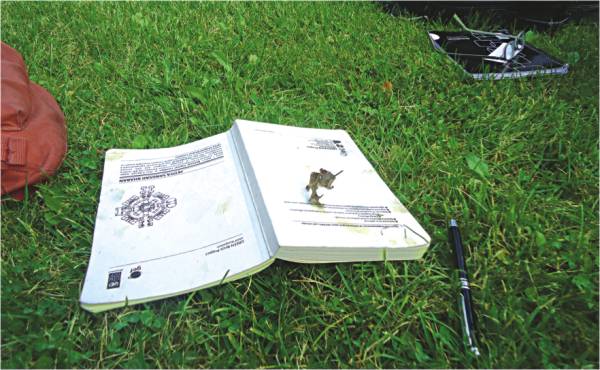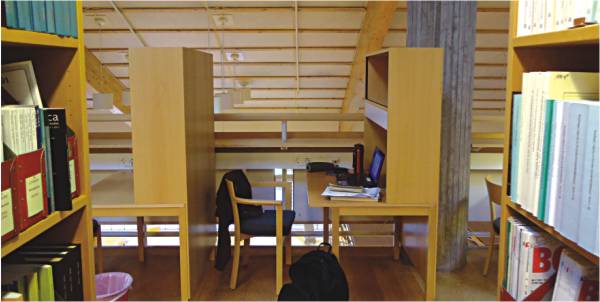Going Spiral
Great Teachers and Non-hierarchical Education
Saad Adnan Khan
Photos: Saad Adnan Khan

I wish great teachers were immortal. I remember having a conversation with my sister, about Tareque Masud. This was when he passed away only last year in a road accident, my sister had attended the special screening of 'Runway.' She told me that by the end of the movie she was in tears. She couldn't stop sobbing. She had done a workshop on digital editing with Tareque and Catherine Masud a couple of years ago. My sister is the first feminist I've known. She always loved doing the 'practical work'-- on spot TV reporting, editing, managing the crowd while shooting a documentary outside Dhaka and more. She teaches Mass Communication and Journalism now, and tries to bring in her practical experiences while she teaches. We talked about how Bangladesh had lost not only a visionary filmmaker, but also a great teacher. Tareque Masud had so much to teach, about history, society, human complexities and simplicities through his movies, and the young people of the nation felt unsettled because finding a replacement for a great teacher is not easy.
Great teachers are rare people. You don't meet them all the time. I once wrote an article in Star Campus called 'Dear Teachers,' where I wrote how we, university students, want to be inspired by teachers. I sketched out how teachers should be this and that. Today, in this article, let me give specific examples of great teaching I have witnessed and experienced first-hand.
One of my teachers, Hasan Al Zayed, from East West University, Bangladesh, introduced me to the world of theories. Theories can be problematic, because you start questioning everything around you then. You start wincing at things, go back home and start saying crazy things like, 'Oh hey! My family is a microcosmic representation of how power and binaries function in society!' My favourite author Arundhati Roy uses the term 'different imagination.' Zayed sir brought in a different imagination in class, when we decided to read unfamiliar texts to understand extremely important and relevant political concepts. We read Akhteruzzaman Elias, Mahasweta Devi and Mahmoud Darwisha-- refreshing digression from the British and American literature we grow up reading. Zayed sir made the most provocative statements in the class, and we laughed about how a student from any other department would probably freak out and run away if he or she had attended one of our lectures and discussions. In my last semester of the undergraduate programme, I did not have any course with him, but I usually snuck into his Cultural Studies class (I had completed the course with him in one of my earlier semesters) and also ended up in his office from time to time to talk about life and well, other important things. He offered me and a friend (who graduated with me) coffee and we expressed our frustration regarding bad teachers and made fun of them. Three social misfits, laughing out loud over cups of coffee and learning from each other-- nothing could be more pleasant and emotionally filling.

Professor Joan Brockmann, from Washington University in St Louis, Missouri, USA, entered the classroom and said 'So, what do you think?' and waited for the students to talk about the literatures assigned for the class. I took the course called 'Writing of the Indian subcontinent,' quite simply because the syllabus of the course included some of my favourite writers. Professor Brockmann gave me goosebumps, because when she talked about the characters in the stories, it felt like she was talking about her friends and family members, people she loved dearly. I remember that at the end of the course, one of my classmates commented that this was one class that stayed with him as he stepped outside the classroom. Professor Brockmann asked all of us to go home and come up with an analytical question on the text we read in every class. I thought that was an interesting way of thinking about a text. She pushed us to come up with our own interpretations, our own readings of the text, because everyone reads the same text differently, and it was important to acknowledge the different ways of looking at things.
Professor Nina Lykke, from Linköping University, Sweden, used the term 'non-hierarchical' education during my face-to-face orientation week. It's interesting how she talks about gender and sexuality politics, given that she's very animated. Nina also wants us to find a connection between academic writing and creative writing. I find her use of the term 'non-hierarchical' education profoundly useful, because learning can take place anywhere, anyhow. It can be students taking the lead in class to bring in a different imagination, students and teachers venting anger about bad teachers over cups of coffee, teachers learning from students. I feel at this point I should make a connection between literature and social sciences. In both cases, we read about human beings. We 'unlearn' what we were taught at school. We dismiss physics, math and biology and, instead, study how these subjects can be questioned and challenged.
So this is my theory: great teachers want us to challenge them, they leave things to us to choose our own paths and become who we are, they talk to us about being social misfits and that it is OK to be social misfits, to take the side of the 'other,' to never stop voicing out, to never stop questioning. Great teachers give us goosebumps. Great teachers help us understand the meaning of the word 'enlightened.' Great Teachers are rooted. Boring and non-experimental teachers don't impress me. They like to play safe-- how mundane and sad is that?
(The writer is a Reporter, Star Campus, currently doing Master's in Gender Studies: Intersectionality and Change at Linköping University, Sweden.)
|
|
|
